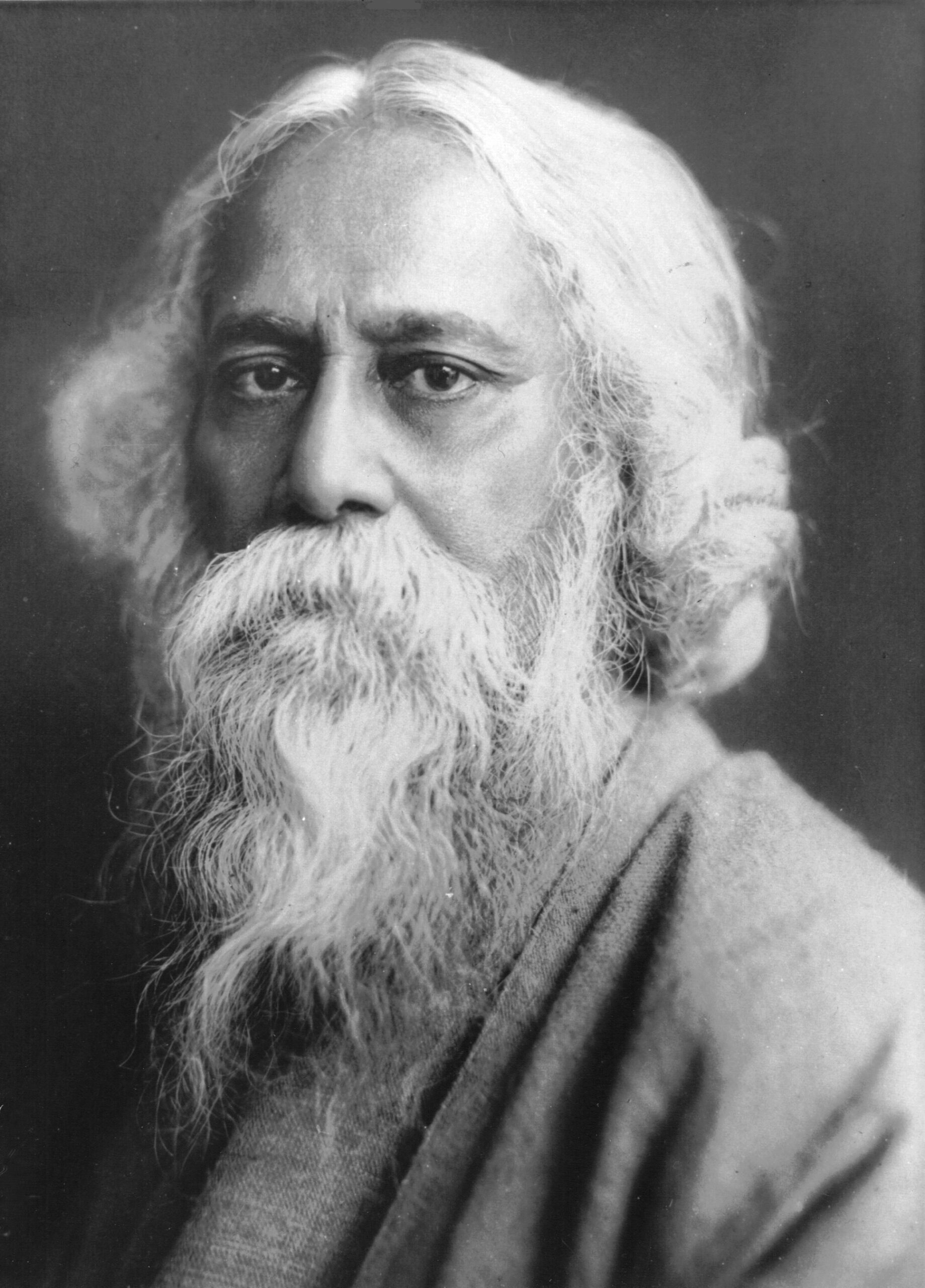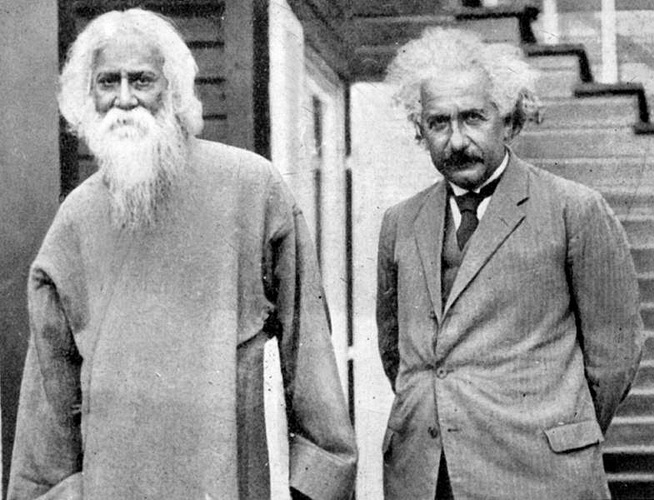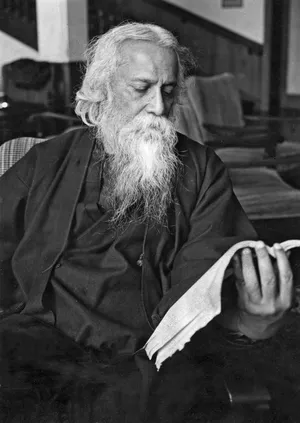
Rabindranath Tagore was born May 7, 1861, Calcutta (now Kolkata), India. Died August 7, 1941, Calcutta.
He was a Bengali poet, short-story writer, song composer, playwright, essayist, and painter who introduced new prose and verse forms and the use of colloquial language into Bengali literature, thereby freeing it from traditional models based on classical Sanskrit.
He was highly influential in introducing Indian culture to the West and vice versa, and he is generally regarded as the outstanding creative artist of early 20th-century India.
In 1913 he became the first non-European to receive the Nobel Prize for Literature.

The son of the religious reformer Debendranath Tagore, he early began to write verses, and, after incomplete studies in England in the late 1870s, he returned to India. There he published several books of poetry in the 1880s and completed Manasi (1890), a collection that marks the maturing of his genius. It contains some of his best-known poems, including many in verse forms new to Bengali, as well as some social and political satire that was critical of his fellow Bengalis.

He was a prominent leader in the Indian Independence Movement, particularly at the time of the partition of Bengal (1905), and two of his compositions became the national anthems of India: Jana Gana Mana in 1911 (“Ruler of the Minds of the People”) and Bangladesh: Amar Sonar Bangla in 1905 (“My Golden Bengal”).
Books
Videos